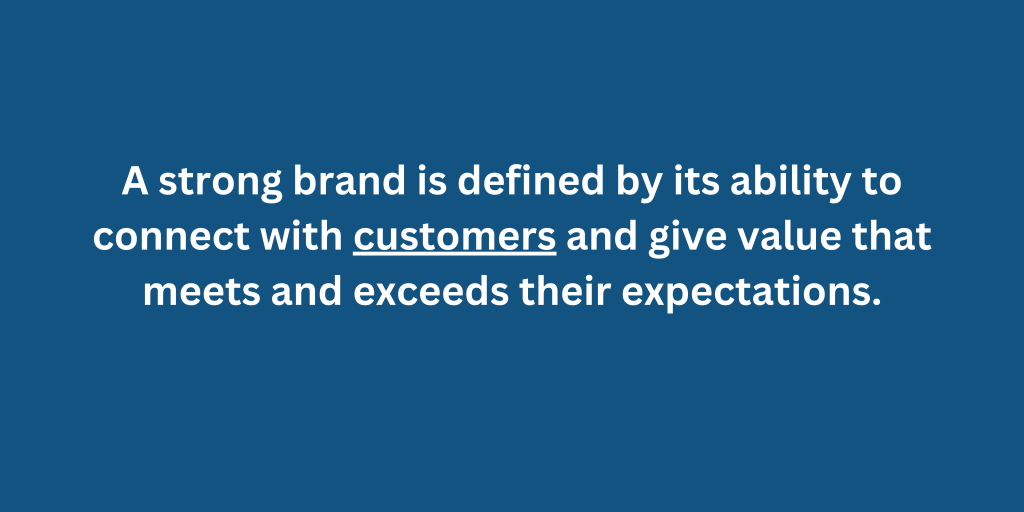In today’s fast-paced corporate world, innovation is crucial for driving growth and staying ahead of the competition. Successful brands are constantly seeking new ways to innovate and push the boundaries. In this article, we will look at brands that have shown a commitment to innovation and contributed to driving industry transformation in their particular sectors.
Examples of Top Brands
Brands exist across industries and regardless of industry, a strong brand is defined by its ability to connect with customers and give value that meets and exceeds their expectations.
- Apple
- Nike
- Coca-cola
- Amazon
- Louis Vuitton
- Chanel
- Mercedez
- Toyota
Apple
Apple’s brand is built on innovation, design, and quality. The company designs products that are simple to use and offer high performance and functionality. This emphasis on user experience has allowed Apple to build a devoted client base prepared to pay a premium for its goods. The company’s product lines include the iPhone, iPad, MacBook, and Apple Watch.
Nike
Nike manufactures trainers, athletic gear, and accessories and its brand is built on performance, innovation, and inspiration.
Coca-Cola
Coca-Cola’s brand is based on enjoyment, refreshment, and nostalgia. The company’s product lines include Coca-Cola Classic, Diet Coke, and Sprite.
Amazon
Amazon’s brand is built on customer excellence, convenience, selection, and low costs. Amazon’s products include Amazon.com, Amazon Prime, Kindle, Amazon Web Services (AWS) and Kindle Fire.
Louis Vuitton
Louis Vuitton is a French fashion house that has built a strong brand based on luxury, exclusivity, and excellence. Its products include handbags, luggage, and accessories.
Chanel
Chanel is another French fashion brand built on elegance, sophistication, and timelessness. Chanel’s products include Chanel No. 5 perfume, Chanel suits, and Chanel handbags.
Mercedes-Benz
Mercedes-Benz is a German luxury automotive manufacturer that has built a strong brand on innovation, performance, and status. Its products include the S-Class sedan, the G-Class SUV, and the AMG performance vehicles.
Toyota
Toyota is well-known for its dependability, quality, and affordability. The company has earned a reputation for making safe, durable, and fuel-efficient vehicles, as well as providing excellent customer service.
Some think brands are built over time, but companies like Google and Amazon have achieved strong brands relatively quickly. Time is important, but not a guarantee. Successful brand building requires establishing customer trust through high-quality products, exceptional customer service, transparency, and ethical behaviour.
What Makes a Good Brand?
- A clear vision and mission
- Consistency
- Differentiation
- Emotional connection
- Brand communication
- Trust
- Innovation and adaptability
A Clear Vision or Mission
Successful brands have a clear sense of purpose and mission. They understand their target audience and what they want to accomplish, and they direct all of their branding efforts towards that goal.
Consistency
Successful companies are consistent in their messaging, visual identity, and customer experience across all touchpoints. They have a consistent and unified brand experience that is easily recognized and remembered.
Differentiation
Successful brands meaningfully differentiate themselves from their competition. They have a distinct value proposition or selling point that distinguishes them and makes them memorable in the minds of consumers.
Emotional connection
Brands establish an emotional bond with their customers. They understand their consumers’ values, desires, and aspirations and utilize storytelling to generate empathy and connection.
Nike, Apple, and Google have all used story-telling to engage emotionally with their customers. Nike, for example, has long utilized the motto “Just Do It” to inspire and motivate athletes and people in general to exercise. Their commercial campaigns frequently contain real-life stories of athletes overcoming hurdles to reach their goals.
Ikea’s “Proudly Second Best Ad” recognizes the special bond between parents and children. The ad features Ikea’s children’s assortment and embraces the idea of being second best in a family. It highlights their top-selling products often overlooked by children in favor of their parents.

Brand Communication
Branding is inseparable from brand communication. Fashion brands heavily invest in marketing, advertising, and events like fashion shows to generate media attention and excitement. Companies like Coca-Cola, Nike, and Procter & Gamble spend billions on marketing annually. In 2020, Procter & Gamble spent over 7.2 billion US dollars, Coca-Cola over 4.2 billion US dollars, and Nike over 3.5 billion US dollars on advertising and promotions.
Trust
Customers trust successful brands that are reliable, honest, and consistent in keeping their promises. General Motors faced criticism for vehicle quality and reliability compared to its Japanese competitors. Slow adoption of fuel-efficient and new technologies led to declining sales and bankruptcy in 2009. This highlights the importance of upholding brand trust.
Innovation and Adaptability
Successful companies are adaptable and responsive to market developments. They outperform their competition by inventing new products and services and are not hesitant to take risks.



